12 Great Quotes on Culturally Responsive Teaching
April 6, 2021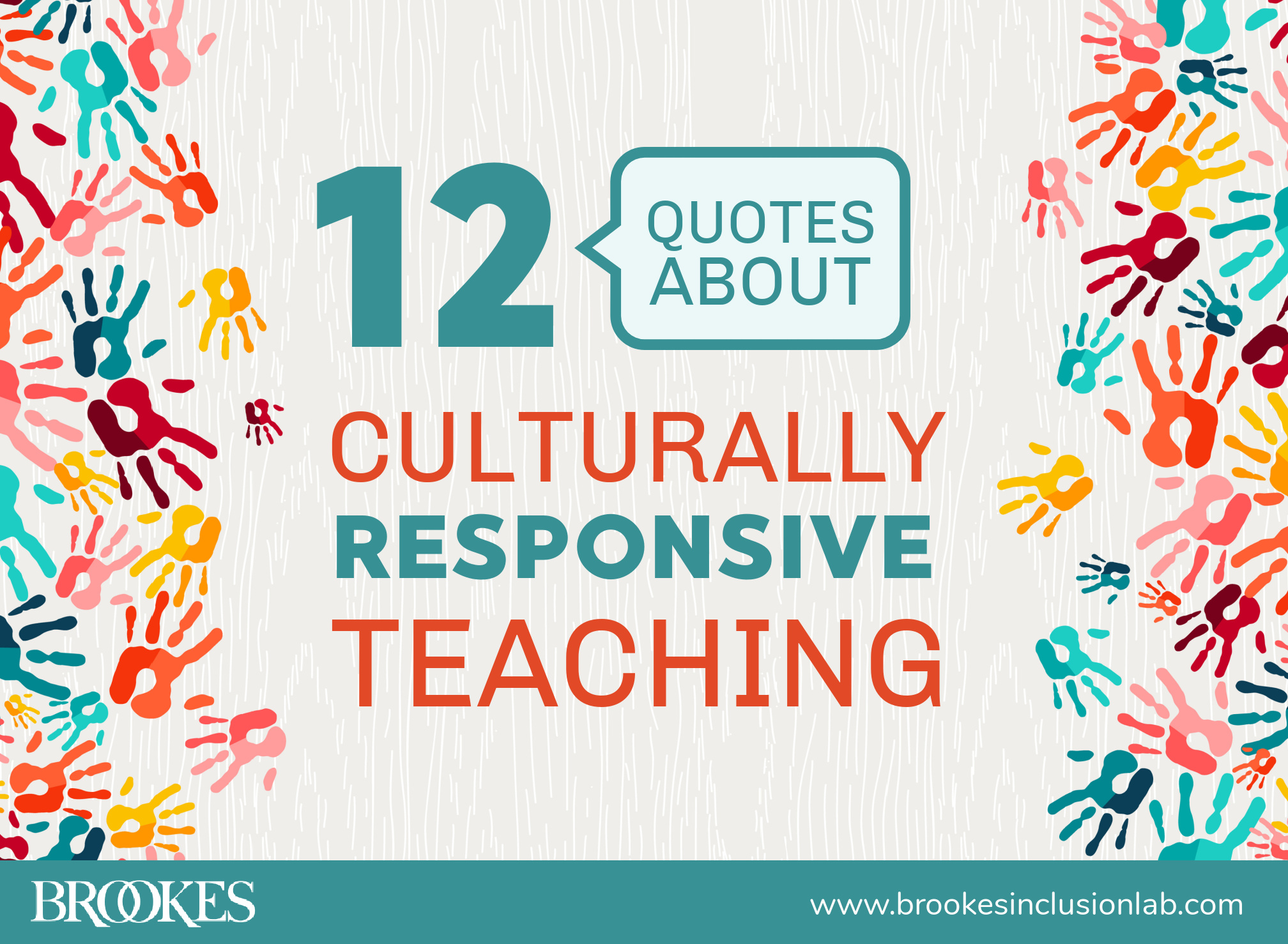
What is culturally responsive teaching? Understood.org defines it as “a research-based approach that makes meaningful connections between what students learn in school and their cultures, languages, and life experiences. These connections help students access rigorous curriculum, develop higher-level academic skills, and see the relevance between what they learn at school and their lives.”
In today’s diverse and inclusive classrooms, culturally responsive teaching has never been more important. Today’s post features 12 shareable quotes from Brookes books about teaching in ways that acknowledge and honor each student’s cultural background. Save your favorites, pin them to your Pinterest board, and share them with your fellow educators!
1. First, an important reminder that the cultural differences among students are an asset, not a deficit. (From Including Students with Severe and Multiple Disabilities in Typical Classrooms, Third Edition, by June E. Downing, Ph.D., with contributions by Joanne Eichinger, Ph.D., MaryAnn Demchak, Ph.D., & Sandra J. Hicks, Ph.D.)
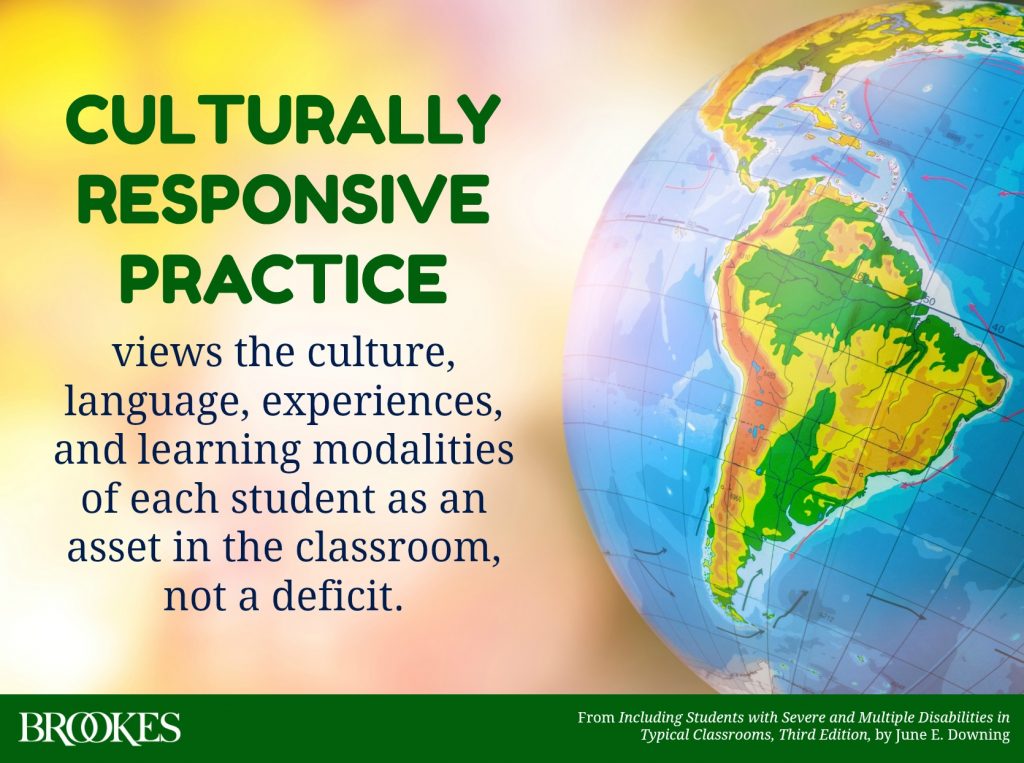
2. One key aspect of culturally responsive teaching is giving students varied options for learning and expressing what they know. (From Educating Students with Severe and Multiple Disabilities, Fifth Edition, edited by Fred P. Orelove, Ph.D., Dick Sobsey, Ed.D., and Donna L. Gilles, Ed.D.)
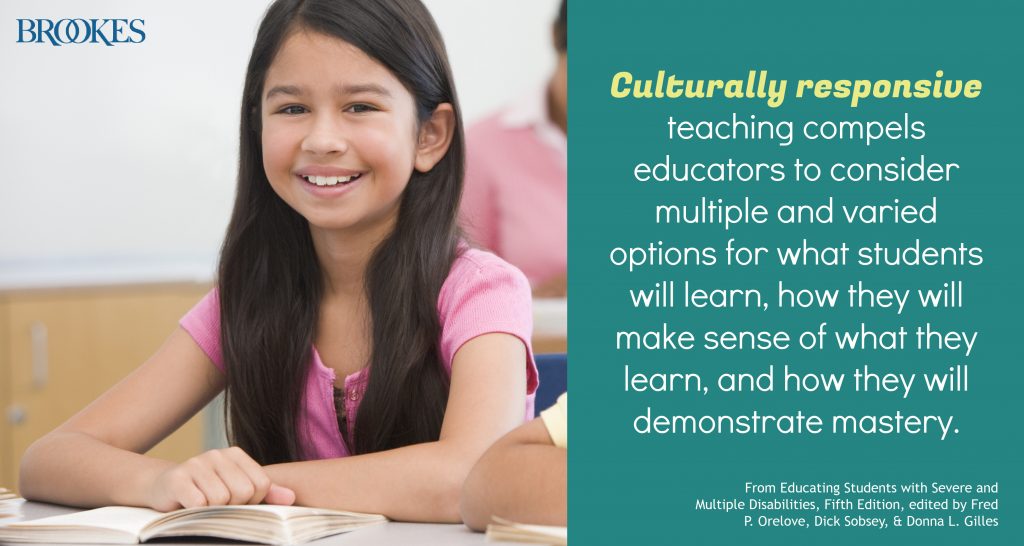
3. A key element of creating a warm and welcoming classroom is making sure your students’ languages and cultures are reflected in your materials and lessons. (From Teaching Dual Language Learners, by Lisa M. López Ph.D., & Mariela Páez, Ed.D.)
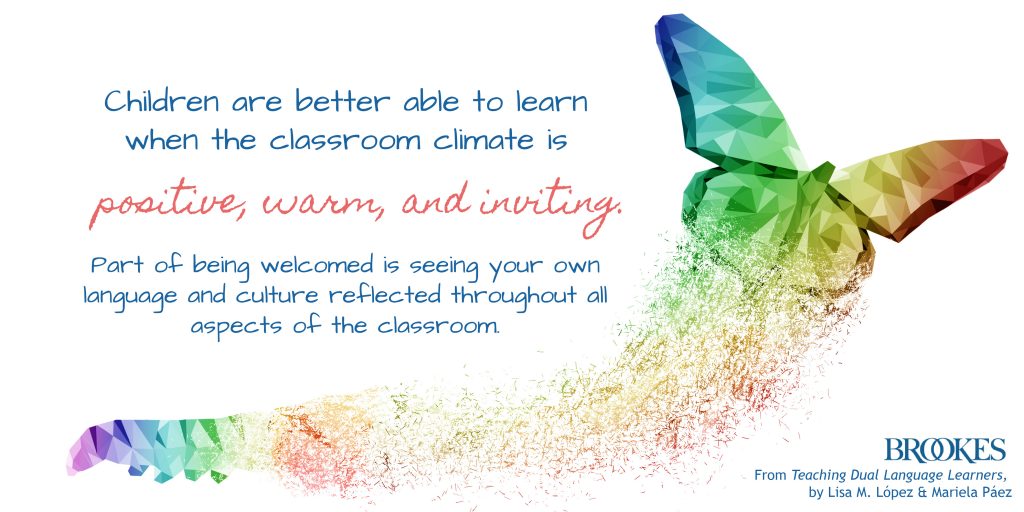
4. Embrace and foster your students’ appreciation for their own cultural backgrounds. (From Promoting Intentional Teaching, by Julie K. Kidd, Ed.D., M. Susan Burns, Ph.D., & Ilham Nasser, Ph.D.)
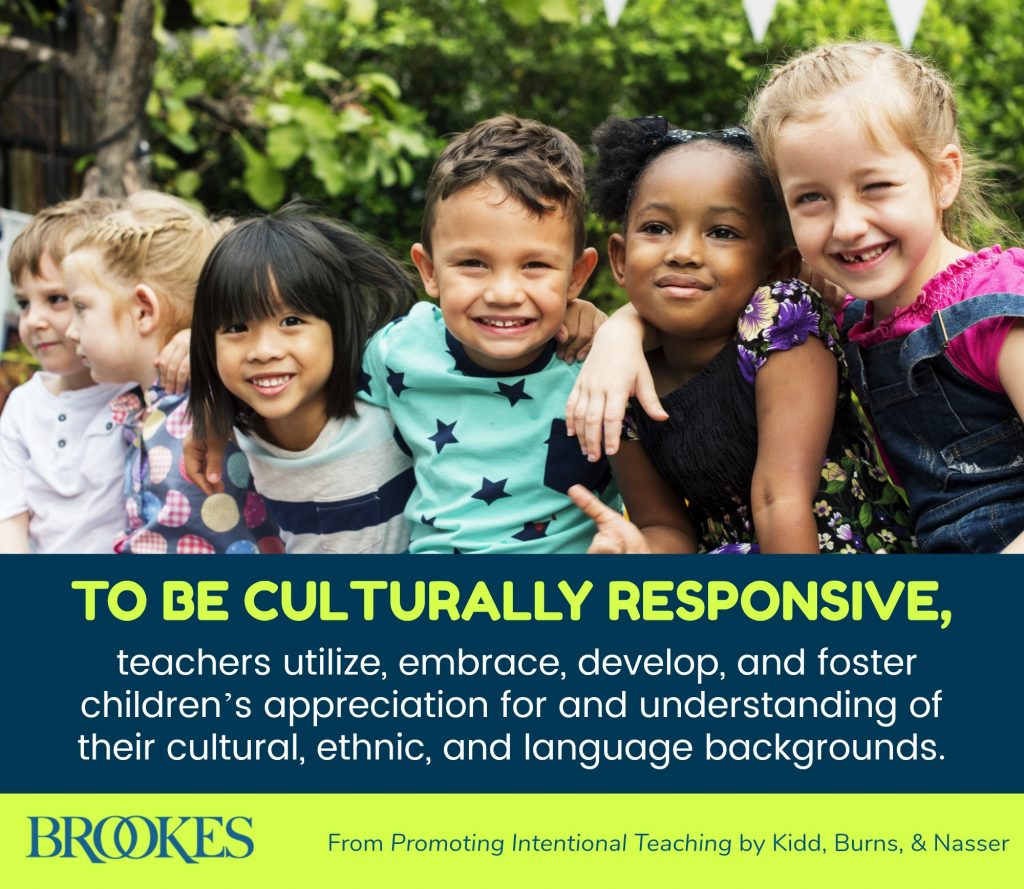
5. Culturally responsive practices help children understand how they’re alike and respect how they’re different. (From Promoting Intentional Teaching)
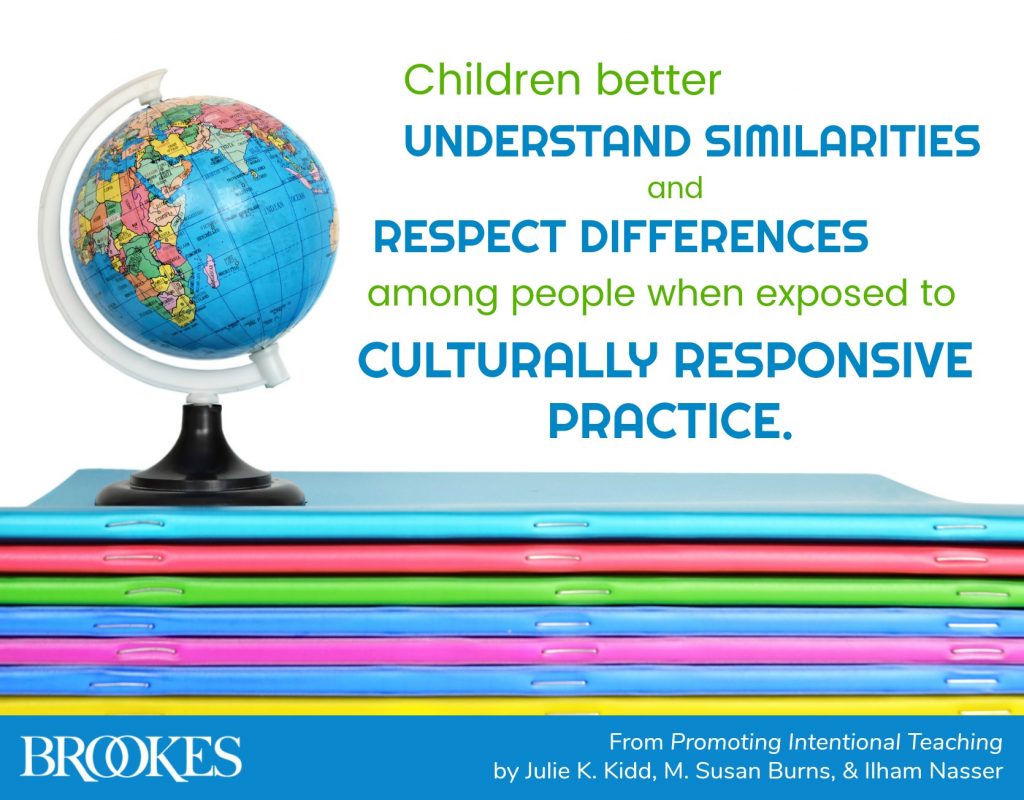
6. As this quote reminds us, understanding culture is a prerequisite for learning how to respect differences while also recognizing the connections that unite us. (From Skilled Dialogue, Second Edition, by Isaura Barrera, Ph.D., Lucinda Kramer, Ph.D., & T. Dianne Macpherson, M.S.W., L.C.S.W., C.A.S.)
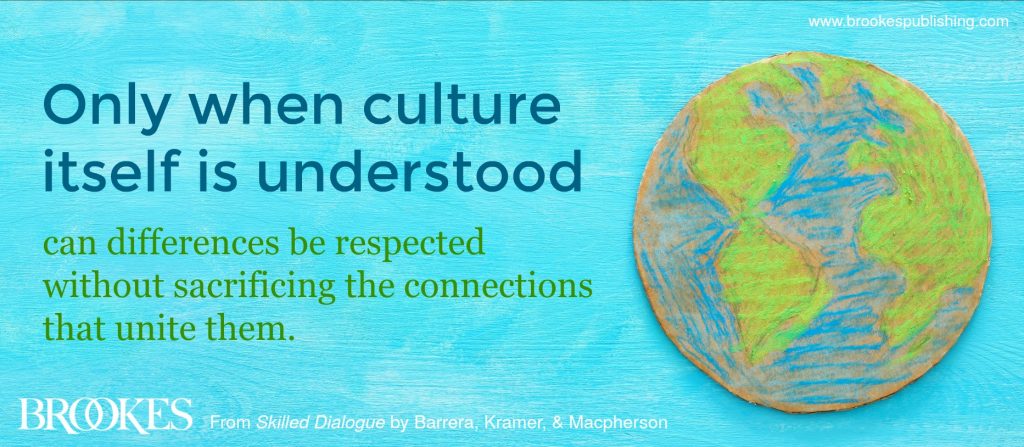
7. Culturally responsive teaching is liberating to students in so many ways. (From Universal Design for Learning in Action, by Whitney H. Rapp, Ph.D.)
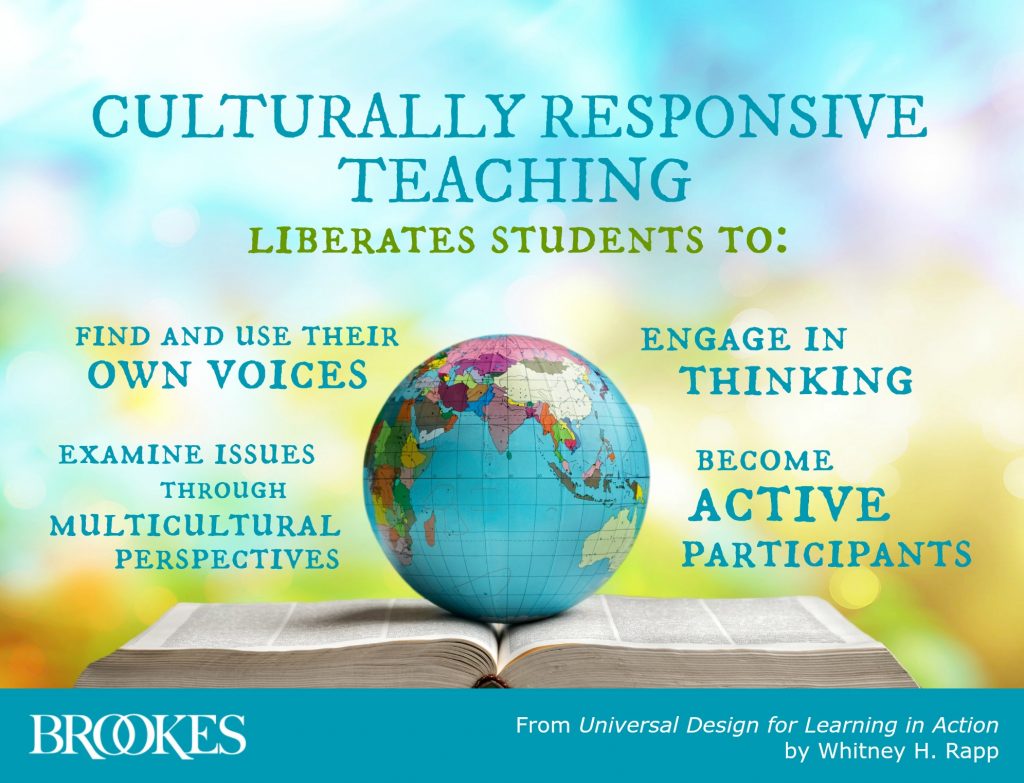
8. The diversity of today’s classrooms should be reflected in your methods and materials. (From Planning the Transition to Employment, by Wendy S. Parent-Johnson, Ph.D., Laura Owens, Ph.D., & Richard Parent-Johnson, Ph.D.)
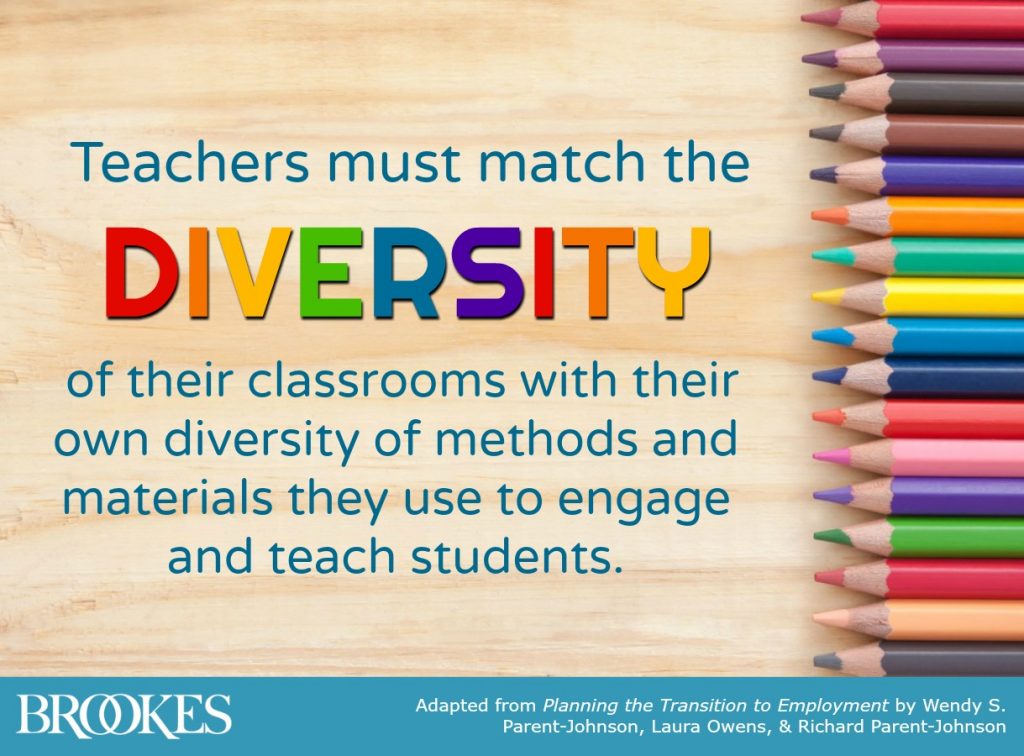
9. Culturally relevant teaching can help encourage students of all backgrounds to become tomorrow’s teachers. (From Teaching Everyone, by Whitney H. Rapp, Ph.D., & Katrina L. Arndt, Ph.D.)
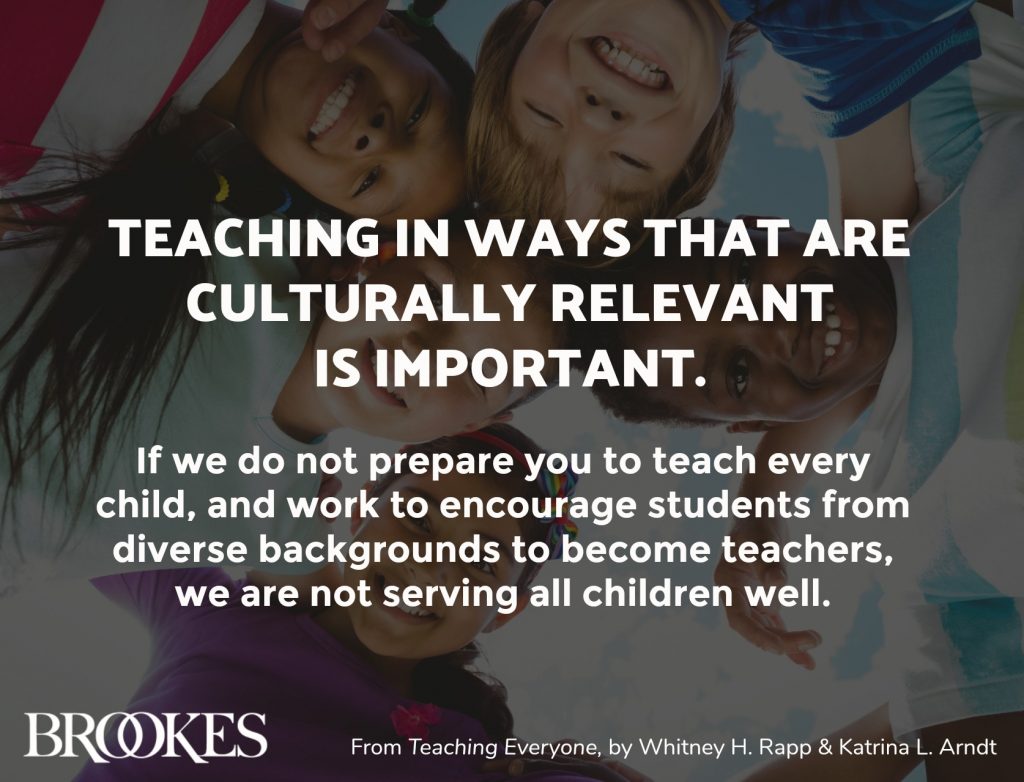
10. Cultural responsiveness enriches the educational experience of everyone, students and teachers alike. (From Promoting Intentional Teaching)
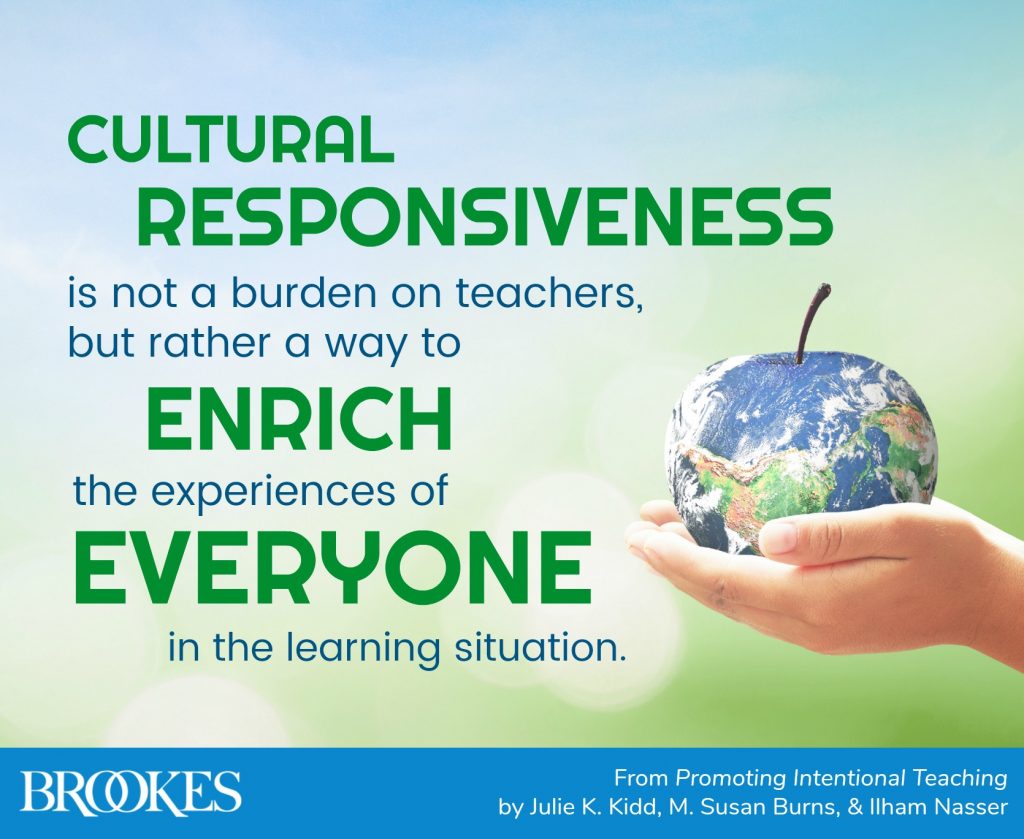
11. Understanding the cultural values of diverse families can help you develop a warm and caring partnership with them. (From Teaching Dual Language Learners)
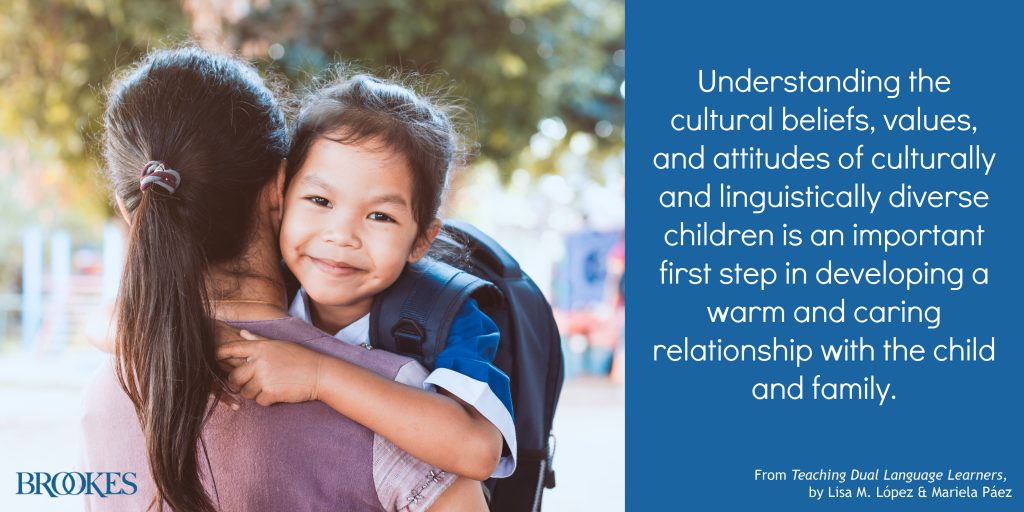
12. Celebrating diversity creates its own kind of magic in your inclusive classroom. (From Making Preschool Inclusion Work, by Anne Marie Richardson-Gibbs, M.A., & M. Diane Klein, Ph.D., CCC-SLP)
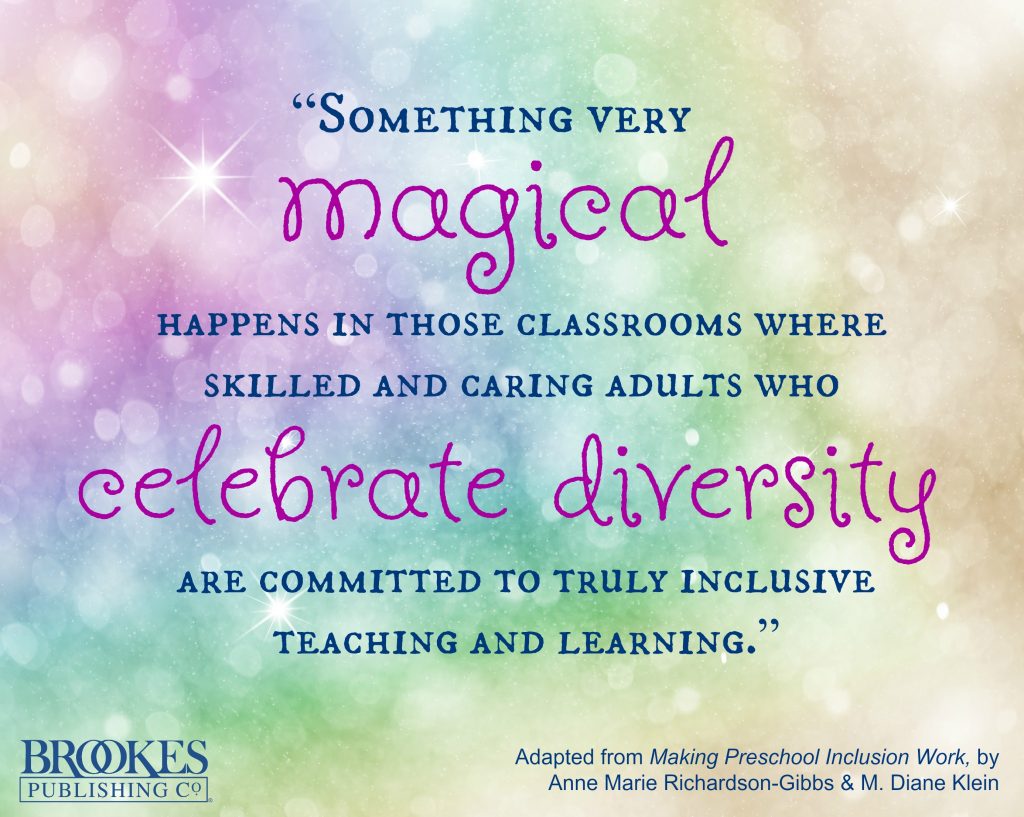
KEEP READING
Like these quotes? Check out the following posts for more on cultural diversity and culturally responsive teaching:
How UDL Can Help You Create Culturally Accessible Classrooms
Cultural Diversity Toolkit for Early Childhood Educators
14 Resources for Diverse Books and Materials
10 Free Resources for Teachers of Young English Language Learners
8 Tips on Communicating with Young Second-Language Learners

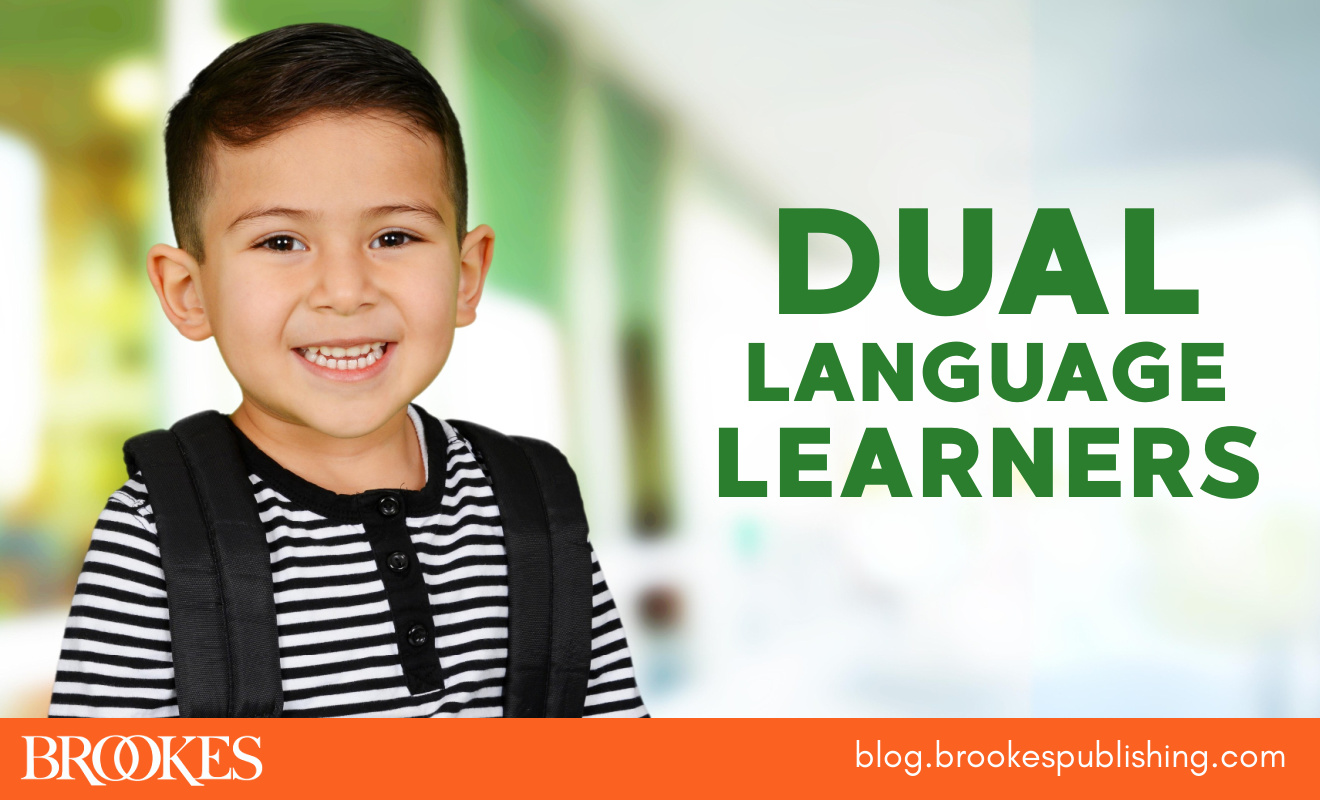

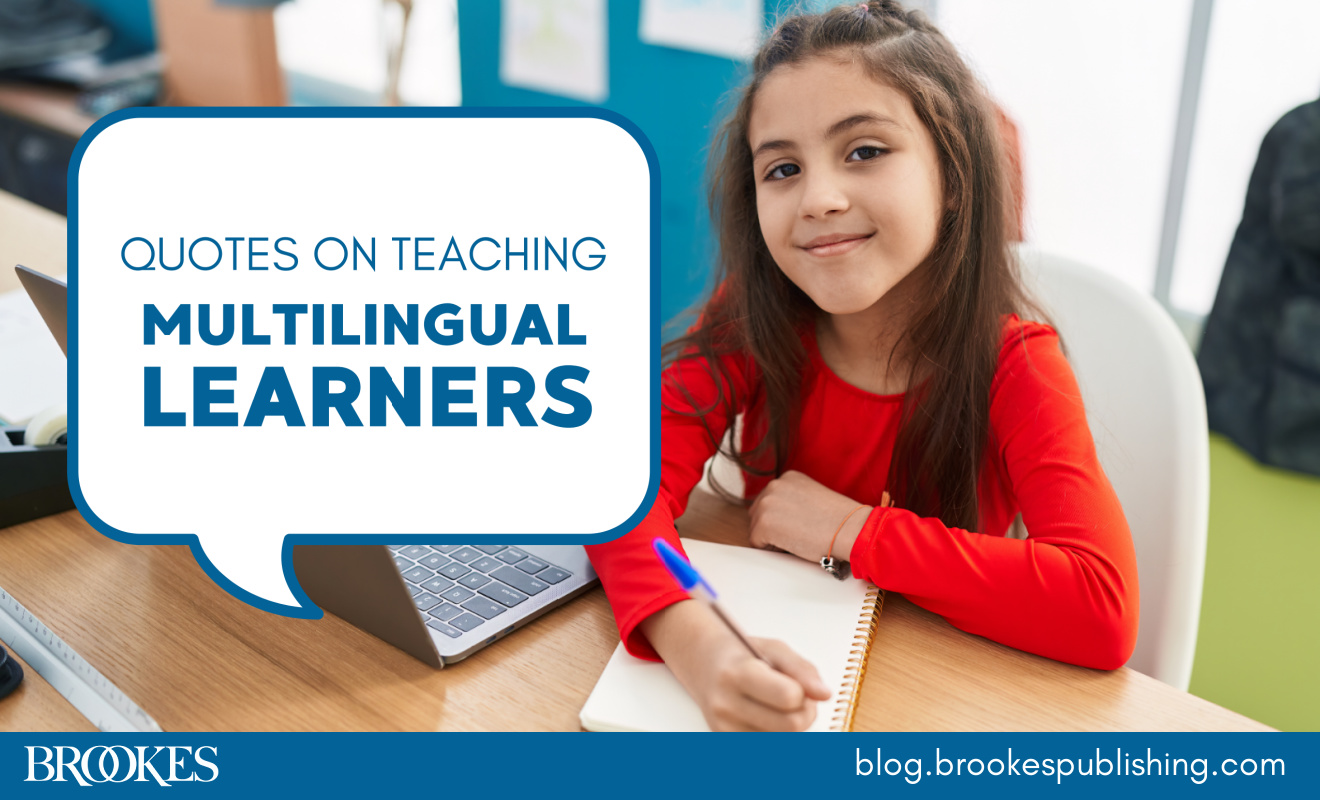
Write a Comment
Your email address will not be published. Required fields are marked *
comments
Katherine Brown says
Do you happen to have the page number for the #6 quote? I would like to use it in a presentation, but must cite the page number, or I can't use it. Thanks!
jlillis says
Hi Katherine! It's page 13 from:
Skilled Dialogue
Strategies for Responding to Cultural Diversity in Early Childhood, Second Edition
By Isaura Barrera, Ph.D., Lucinda Kramer, Ph.D., & T. Dianne Macpherson, M.S.W., L.C.S.W.,
C.A.S.
Post a Comment